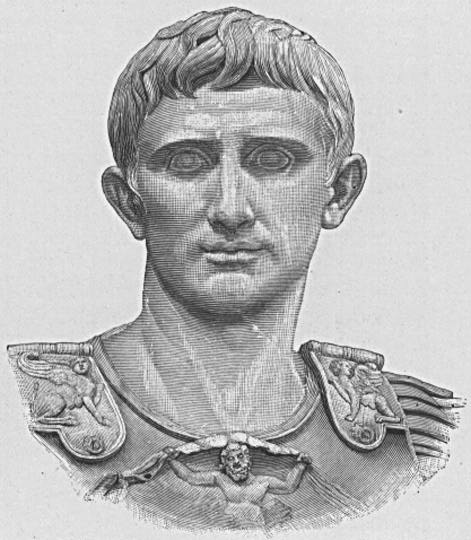My history book club me last night to discuss Augustus: The Life of Rome's First Emperor by Anthony Everett. Everett's biography suggests he is a journalist rather than an academic historian, and there was agreement that the book was easy to read. I thought it interesting that those who had read his earlier book, Cicero: The Life and Times of Rome's Greatest Politician, much preferred Augustus.
We were impressed that it is possible to write a biography at all of a person who lived 2000 years ago. On the other hand, Everett guessed a lot as to what Augustus was thinking or intending. (Indeed, we still have to guess a lot about what a modern politician really intends or really thinks.) There was agreement that the biography enlivened the historical narrative, making it more interesting.
Augustus was not only the survivor but the victor of decades of civil war, the man who began the empire and saw the end of the Roman republic. He had the advantage of being the adopted son of Julius Caesar, and importantly of a partnership with Agrippa, the winning general of many key battles. Augustus was clearly lucky (even to have survived to old age at a time when many died young, not only in battle but from disease), but one must assume that he was also smart and a capable political tactician and strategist.

Everett writes that Augustus planned and intended a great deal of what occurred, while I would tend to assume that his plans probably often went awry, but that he was good at muddling through. Everett suggests that Augustus may not have been personally courageous in battle, and often ill at moments of crisis, but was very brave in the public confrontations necessary in his time (facing down crowds of citizens, Senators, and soldiers). There was considerable discussion of the degree to which Augustus benefited from the myth that accumulates around the surviving chief of the victorious party of a civil war, especially when he then presides over a long period of relative peace and prosperity. Augustus was also the beneficiary of the propaganda of his supporters and government.
Rome, in Augustus' time reached from the Atlantic well into the Middle East. It stabilized its northern borders at the Rhine and Danube, while consolidating control of north Africa. It continued and elaborated Greek culture, leaving a huge legacy for Europe, North America, Australia and New Zealand, and indeed all of the modern world.
Everett spends time explaining a number of things, if only briefly, from Roman foods and dining customs, to clothing, to the political organization of the Roman legislative and administrative systems. I found it interesting to think about a culture so different than ours that was still successful in its time in uniting tens of millions of subjects in an empire so broad in extent, in spite of not having invented effective systems of taxation and bureaucratic administration, nor having separated government from an excessively superstitious religion in rapid flux.
I was not alone in the club in wondering about Roman communications. How were the roads built and maintained, and how were ships built and shipping managed? How did messages travel from the ends of empire to its capitals?
We discussed the sources of silver, the inflation that occurred when Rome acquired the accumulated riches of Egypt, and the extent of commerce. We discussed the slave trade and acquisition of slaves through war (but not the institutions of slavery, nor the situation of freemen in the class society of Rome), but did not discuss where barter ruled, where there were free distributions of bread, and where the money economy functioned well.
I would have welcomed a better discussion of the Roman military and naval power. There is a hint of the role of cavalry and auxiliaries to the legions in the book, but no real discussion of why Roman armies and navies were so successful. Indeed, how did Rome support a huge military establishment with a primitive system of taxation and bureaucratic administration?
On the other hand, Everett and his publishers are to be commended on providing a chart of Augustus' family tree, a time line, an explanation of the naming customs of Roman society (all girls given the same name, names changing over the life of leaders to mark significant achievements), and maps of the empire and the sites of significant battles.
The book club discussed this book for a couple of hours, which I found especially useful as members not only brought out aspects of the book that I had failed to fully appreciate, but also complemented the information in the book with that drawn from previous readings and study. We touched on modern parallels to Roman times.
All in all, I found the book to be worth while, and continue to find the history book club a great contribution to my community. Augustus was a man who lived an eventful life, leading a major transformation of a great society, a society that legacy still with us for good and ill. We will read more Roman history to learn more about the rise of the culture in the centuries before Augustus and the fall of the empire in the centuries following his death.

No comments:
Post a Comment